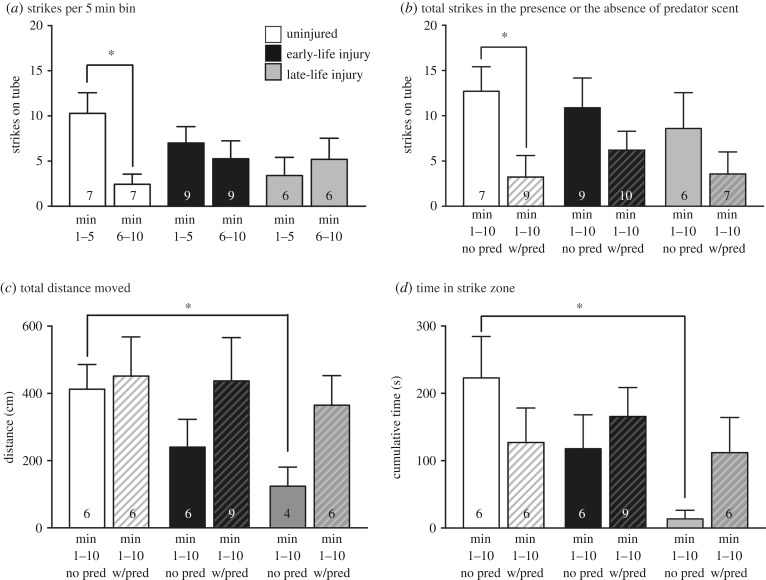Figure 5.
Both chronically and acutely injured squid show cognitive deficit and altered risk assessment. (a) In an aversive conditioning task, strikes made at confined prey declined significantly in the second half of a 10 min trial for uninjured squid. Neither squid injured in early life nor squid injured acutely as adults showed significant learning. Paired t-tests, *p < 0.05. (b) When the task was repeated in the presence of a predator olfactory cue, uninjured squid significantly decreased foraging behaviour, but neither injured group did. (c) Only the acutely injured (LLI) squid showed a reduction in the total distance moved during the trial in the absence of a predator. There were no differences when in the presence of predator scent. (d) Similarly, there was no difference in the time squid spent in the ‘strike zone’ around the beaker (see also figure 6) in the presence of predator scent. Acutely injured squid spent less time in the strike zone compared with controls in the absence of predator scent. Unpaired t-tests, *p < 0.05. Numbers inside bars are group sample sizes. Note fewer samples in (c,d) relate to lack of automated tracking data for some individuals. Bars show mean + 1 s.e.m.

